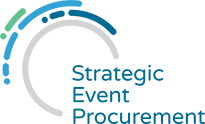Will Your Existing Hotel Contracts Hold Up?

When you relaunch your meetings program, don’t assume the contracts you signed pre-Covid will fit today’s environment.
Are you dipping your toes back into in-person events?
I attended IMEX America last month and it was clear that there is an appetite for organizations to hold in-person events again.
If you have programs already on the books for 2022 and beyond, now is the time to consider the impact Covid might have on how those programs operate.
Here are four pointers for reviewing your existing contracts:
Re-evaluate your expected attendance numbers. Review your initial projections and consider if they are still accurate. Will your attendees be able to travel to your destination? While international travel is mostly open, disruptions in airline routes and limited schedules for both international and domestic travel may affect airlift to your destination. Some corporations are still limiting business travel, and the emergence of the Omicron variant may also put a wrench into the recovery.
If you expect your numbers to change, consider how it will affect your room block pick-up, meeting space usage, and F&B minimums.
Verify the hotel can perform as contracted. Labor shortages and supply-chain issues are real, and some services you expected when you signed the contract may not be available. Check in with your hotel salesperson and have a candid conversation. Ask about staffing levels and potential impacts for operating your program. For example, workforce shortages may make it impossible to execute the plated meal for 250 you originally had in mind. If you are planning room-drops, confirm these can be supported, along with any other services that could be curtailed due to short staff.
Also check on the availability of restaurants, other hotel outlets, and even housekeeping. If they are not fully operational, that can impact your guest experience. The same is true for taxis and rideshare services. Some cities are experiencing a shortage, and your attendees might have a hard time getting transportation.
Review Covid policies and procedures. Check hotel policies and compare them to your organization’s policies and expectations. Many properties have earned GBAC Star rating, which indicates that it has the protocols and cleaning best practices in place to prevent disease like the coronavirus. If the property doesn’t have this accreditation, what are its cleaning protocols? Check the hotel’s requirements for masks, vaccines, or testing for staff. How might its policy (or lack of) impact your event? Review your own Covid policy with the hotel. If there are gaps or conflicts, those will need to be addressed, as well as who’s responsible for policy enforcement.
Double check your meeting space needs. You may need more space to allow for onsite Covid protocol management. You might also need to reconfigure your layout to allow for social distancing. We’ve learned a lot about content delivery in the past 20 months. If your agenda has changed, your space plan might also change.
Start these conversations as early as you can so you and your hotel partners will have time to consider alternatives that will work for you and your attendees. You will also want to make sure to update your communication plan to reflect any changes so people will know what to expect.
Contract Management is a key component of a successful Strategic Meetings Management program.
Did you know that first year savings can be 10% to 20% of total spend? If you don’t have a program in place, here are two ways I can help:
Download my Getting Started checklist.
Book a complimentary call to estimate your savings and other potential benefits
As seen on MeetingsNet
READY TO LEARN MORE?
Take advantage of a free 30-minute consultation to get to know each other.
